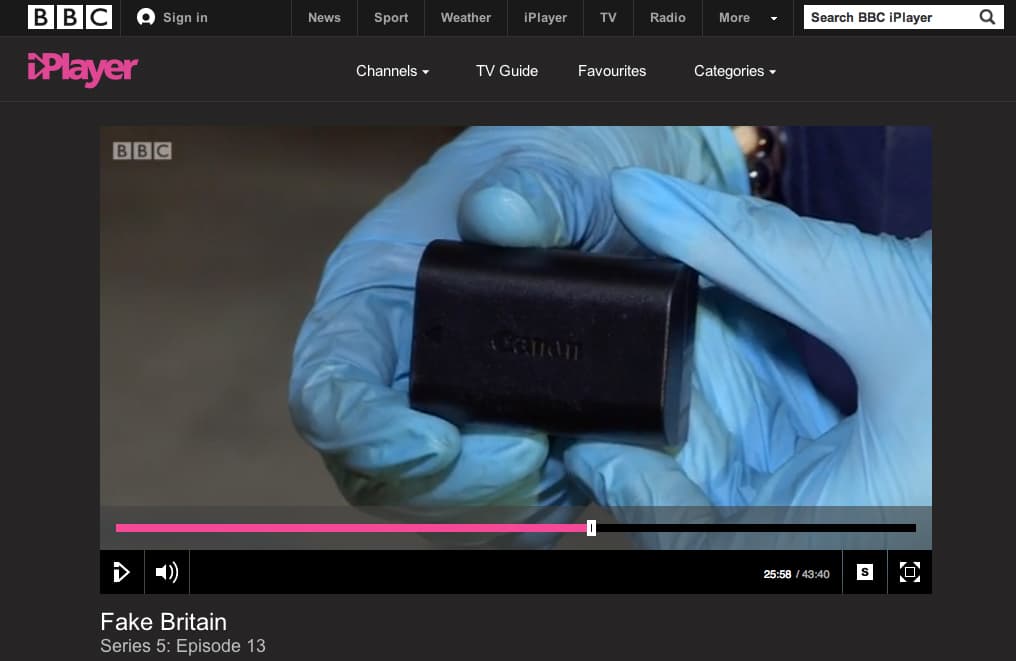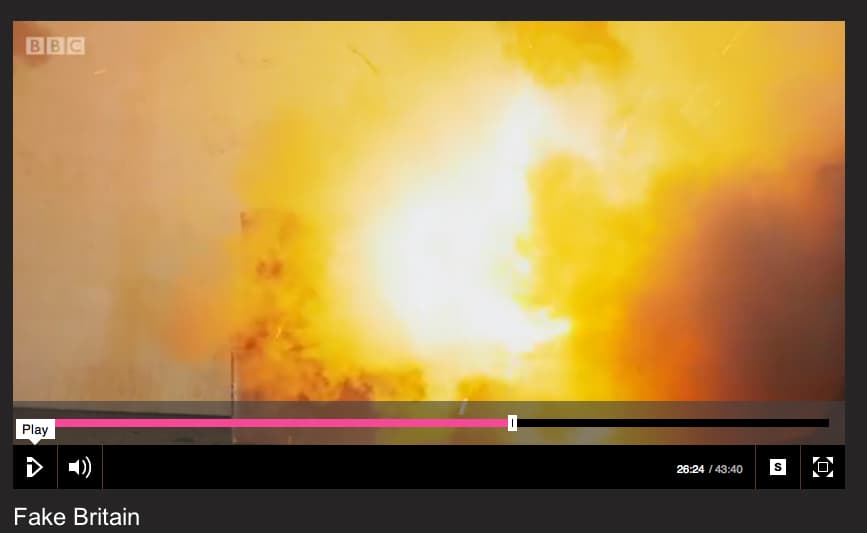The BBC programme showed how a fake battery is susceptible to explosion when it overheats
Fake Britain highlighted the recovery of bogus Canon, Olympus and Sony Cyber-shot batteries, which led to a man’s arrest.
Wally Dinn, from North West Trading Standards Unit, said his team discovered six large boxes of suspected fake camera batteries, thought to be worth thousands of pounds.
Dinn explained that fakes were stored inside generic packaging for ‘digital camera chargers’.
Roy Wilson, who inadvertently bought a counterfeit camera battery, told Fake Britain: ‘I was annoyed. I was furious. I felt ripped off.’
The programme pointed out that the counterfeit batteries are ‘far more likely to short-circuit’ than a genuine battery, due to poor quality control and lack of built-in safety features.
Earlier this year, the Civil Aviation Authority (CAA) moved to raise awareness of the potential risks of air passengers buying poor quality batteries online, as the number of electronic devices carried on planes rises.
A CAA spokesman told Amateur Photographer: ‘We are in the hands of passengers to a large extent…
‘We need to work with passengers and the [airline] industry to ameliorate any risks.’
The CAA urged passengers to carry spare batteries only in carry-on luggage and to pack them in a separate bag ‘isolated from anything else’.
A spokesman added: ‘Incorrectly packaged or counterfeit lithium-ion batteries are a potential fire risk, which is why the CAA has launched an awareness campaign with airports and airlines to help manage that risk.’
The Fake Britain programme is currently available to view on BBC iPlayer.








